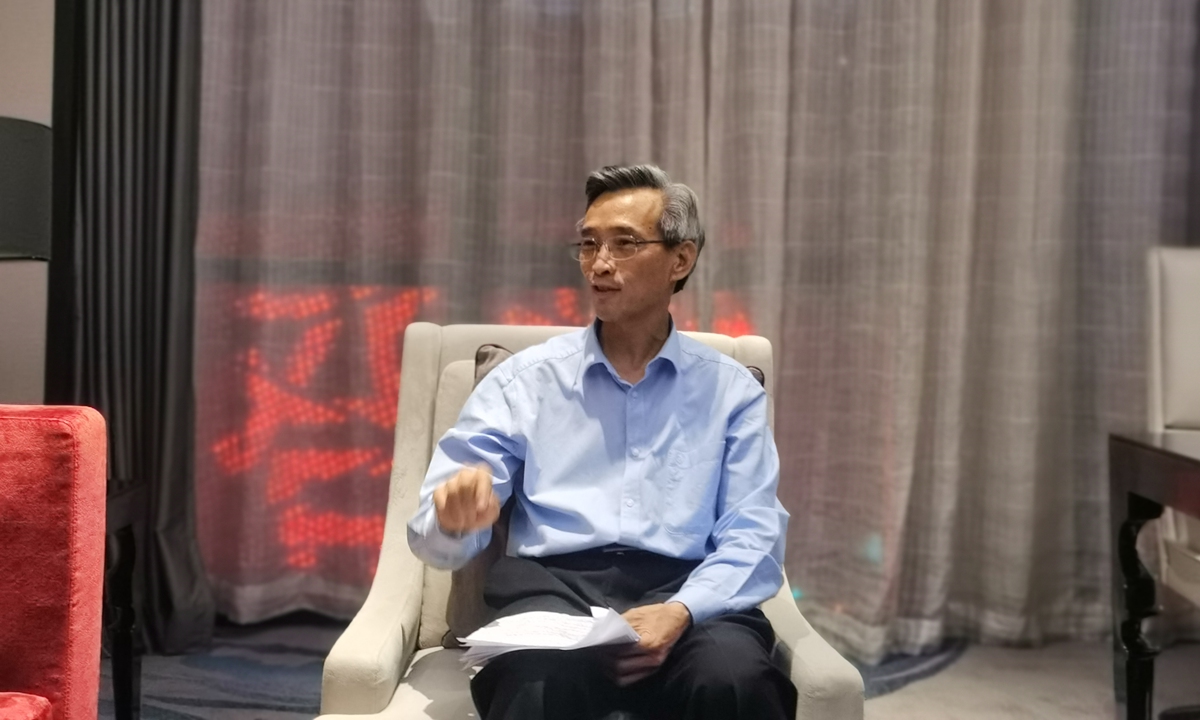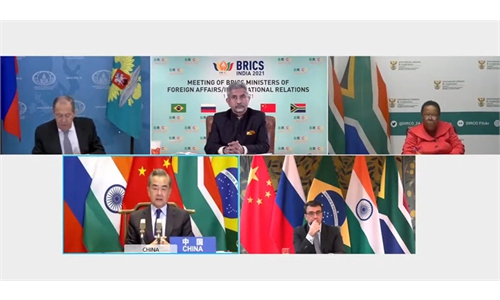China is ready to help India and other S Asian countries fighting COVID-19: CPAFFC president

Lin Songtian, president of the Chinese People's Association for Friendship with Foreign Countries (CPAFFC). Photo: Wang Xinyi/GT
China has the willingness, capacity and resources to help India and other South Asian countries that are grappling with the new wave of COVID-19 cases, said the president of the Chinese People's Association for Friendship with Foreign Countries (CPAFFC).
When India became engulfed in the second wave of COVID-19 cases and faced a severe shortage of medical resources such as protective suits, the CPAFFC expressed its willingness to help the Indian government, Lin Songtian, president of the organization, told the Global Times in an exclusive interview on Thursday.
"As long as [India] asks, we will offer full support," said Lin, noting that as India's most important neighbor, China has the willingness, capacity and resources to help Indian people overcome the challenges posed by the COVID-19 outbreak.
Chinese State Councilor and Foreign Minister Wang Yi met virtually with his counterparts from Afghanistan, Pakistan, Nepal, Sri Lanka and Bangladesh on Tuesday to discuss efforts to fight against COVID-19 and seek post-pandemic economic recovery.
The foreign ministers attending the online meeting reached an agreement to build China-South Asia emergency reserves.
Lin said that the CPAFFC is actively negotiating with local governments and institutes with which it has ties to collect anti-pandemic resources such as masks, protective suits, ventilators and other items to help India, as well as other South Asian countries.
Lin made the remarks to the Global Times while he was attending the Shanghai Cooperation Organization Forum on People-to-people Friendship, which is being held in Wuhan, Hubei Province from Wednesday to Friday.
Lin refuted recent smears against the Wuhan Institute of Virology from the US, after US President Joe Biden demanded that US intelligence agencies confirm in 90 days if the coronavirus emerged from a laboratory, sparking an uproar in the international community.
Virus origin probes should be left to scientists to investigate, not US intelligence agencies, said Lin, noting that the US' moves are not scientific, and they serve the country's aim of politicizing as well as stigmatizing the virus.
Lin said that choosing Wuhan to host the SCO's first people-to-people exchange forum is aimed at sending a signal of gratitude to international friends who helped Wuhan and China combat the pandemic, boosting the morale of people who are still grappling with the pandemic, and sending out China's friendly voice to the international community about building a community with a shared future for mankind, to cope with the major changes of the century.
Lin said that international relations should be led by both high-level government officials as well as people-to-people exchanges, which can boost mutual understanding and friendship between Chinese and people from other countries.
He also prioritized pushing forward people-to-people exchanges between China and the US. He said that over the past year, he had 22 online and in-person communications with Americans from all walks of life, including local governments of sister cities, research institutes, business circles and the media.
Lin said that in the course of those communications, he experienced a China-US relationship that is totally different from that which Western media have described.
"First, we share the same idea that both Chinese and Americans desire world peace. Second, the two countries' companies and research institutes are looking forward to development, and third, the two countries can benefit from each other."
But at the same time, the US government has been politicizing its China policies by painting China as its biggest rival, which has been reflected in Washington's decision to close Confucius Institutes and tighten visa approvals for Chinese students. US politics has poisoned public opinion, and public opinion has been kidnapped by politics, said Lin, noting that US politicians can now only win votes by waving the anti-China flag.
Against this backdrop, and with people-to-people exchanges cut off by the pandemic, the US government has been using the media to fabricate rumors about China and point fingers at Beijing, said Lin.
He believed that as an organization that advocates friendly exchanges between people, it is important to let more people see the truth about China.
"First, it is important to invite Westerners to witness China's development. Then, we can encourage foreigners in China to spread the truth about China to the outside world," said Lin, noting that "the CPAFFC will organize foreigners in China to visit more places in this country, to form a deep understanding and to understand China, and through them, to demonstrate a real, dimensional China to the outside world."


